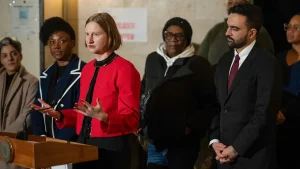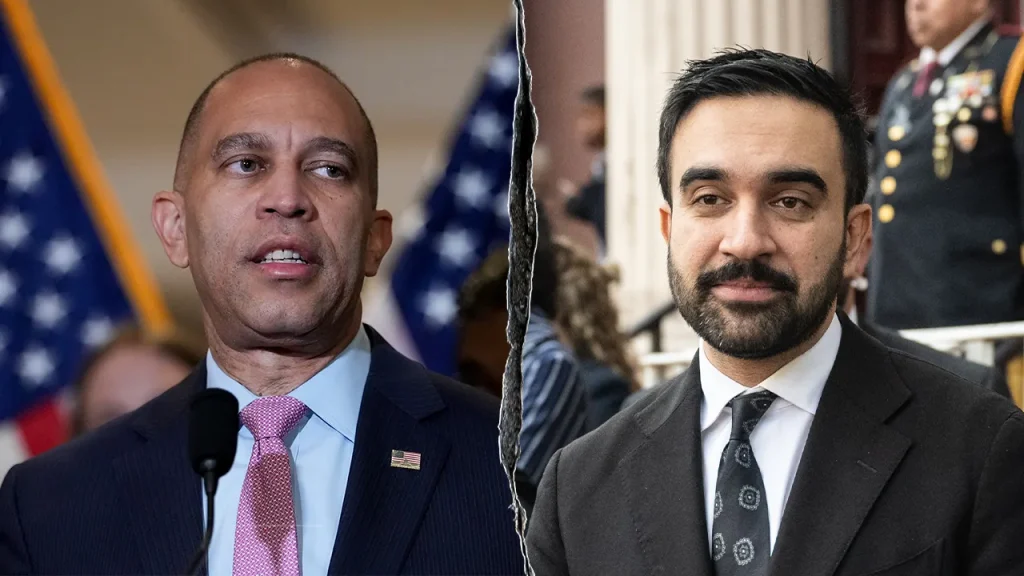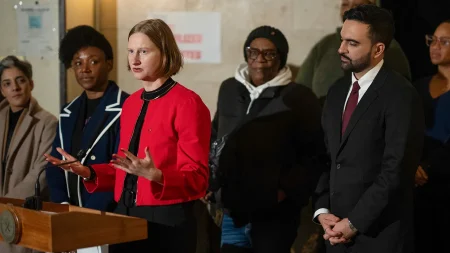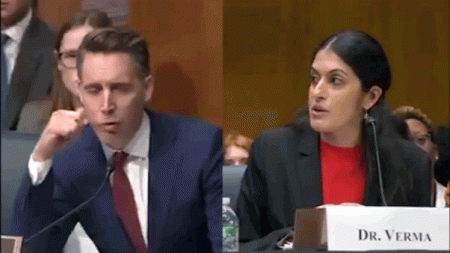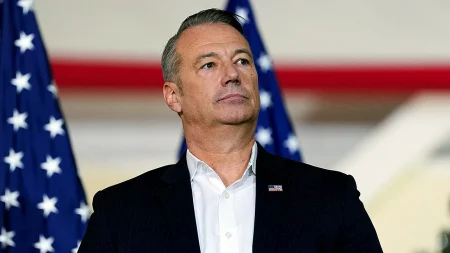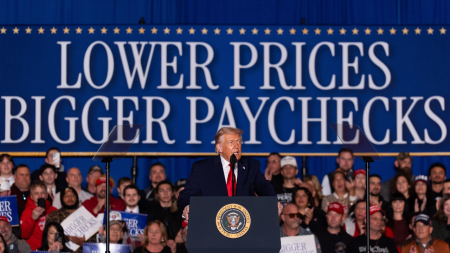Jeffries Sidesteps Questions About Socialist Mayor-Elect’s Place in Democratic Future
In the aftermath of Zohran Mamdani’s groundbreaking victory as New York City’s mayor-elect, House Minority Leader Hakeem Jeffries found himself navigating delicate political waters during a Capitol Hill press conference. When directly asked whether the 34-year-old self-proclaimed democratic socialist represents the future of the Democratic Party, Jeffries pivoted to broader party messaging on affordability issues. “Democrats have leaned into the issue of affordability because America’s too expensive,” he responded, before criticizing Republicans and former President Donald Trump for policies he claimed have “made it worse” through tariffs and impacts on the clean energy economy. Rather than addressing Mamdani’s socialist identity directly, Jeffries simply acknowledged him as “the mayor-elect of the City of New York,” adding that “it’s incumbent upon everyone to make sure that he’s successful.”
The relationship between the Democratic Party’s establishment and its progressive wing has been highlighted by Mamdani’s rise. While progressive leaders like Senator Bernie Sanders and Representative Alexandria Ocasio-Cortez quickly endorsed Mamdani’s candidacy, the party’s top leadership moved more cautiously. Jeffries himself didn’t offer an endorsement until just before early voting began in late October, and Senate Minority Leader Chuck Schumer never formally endorsed Mamdani, though he later described the victory as “historic.” The hesitation underscores the ongoing tension within the Democratic coalition as it grapples with its ideological boundaries. Mamdani, who immigrated from Uganda and becomes the first Muslim mayor of America’s largest city, represents both demographic and ideological shifts that are reshaping Democratic politics in urban centers.
When pressed earlier about whether Mamdani’s victory signals the Democratic Party’s future direction, Jeffries had similarly redirected the conversation to broader party goals: “I think the future of the Democratic Party is going to fall, as far as we’re concerned, relative to the House Democratic Caucus and members who are doing great work all across the country as it relates to our need to take back control of the House.” The careful language highlights the balancing act Democratic leaders must perform – celebrating electoral victories while managing perceptions about the party’s ideological positioning. Despite these deflections, Jeffries characterized Tuesday’s nationwide results as “a big night for the American people” and “a decisive repudiation of Donald Trump and failed Republican policies,” pointing to Democratic successes in California, Virginia, and New Jersey.
The political backdrop to these discussions includes a record-breaking government shutdown, now in its 36th day – the longest in U.S. history. The shutdown centers on disagreements over expiring Obamacare subsidies and healthcare benefits, with Senate Democrats having rejected a House-passed continuing resolution budget bill fourteen times. Nevertheless, Jeffries expressed confidence that voters are assigning blame to Republicans and President Trump, not Democrats, for the ongoing impasse. This assessment appears to inform his bullish outlook for the 2026 midterm elections, where he boldly predicted, “We’re going to take back control of the United States House of Representatives.”
Jeffries’ confidence extends beyond mere optimism to specific electoral mechanics that he believes will favor Democrats in the coming election cycle. He specifically praised the passage of a California redistricting proposition backed by Governor Gavin Newsom, suggesting it would help Democrats recapture House seats. “Republicans are going to be unable to gerrymander their way into rigging the midterm elections,” he declared. “That scheme is over. Buried dead in the ground. And so, we’re going to take back control of the House and fight for every inch of territory.” This focus on redistricting and structural electoral factors represents a strategic emphasis on the mechanics of winning rather than purely ideological appeals.
The questions surrounding Mamdani’s victory and Jeffries’ responses reflect broader tensions within American politics about the definition and boundaries of mainstream political identities. As democratic socialism gains traction in major urban centers like New York City, party leaders must navigate how to incorporate these movements while maintaining appeal across diverse constituencies. Mamdani’s historic win – making him not only the first socialist but also the first Muslim to lead America’s largest city – represents multiple barriers being broken simultaneously. Whether his victory represents an ideological outlier or the vanguard of a shifting Democratic Party remains contested terrain, with Jeffries’ careful responses suggesting party leadership isn’t yet ready to embrace democratic socialism as central to its identity, even while celebrating electoral victories that come with progressive support.

